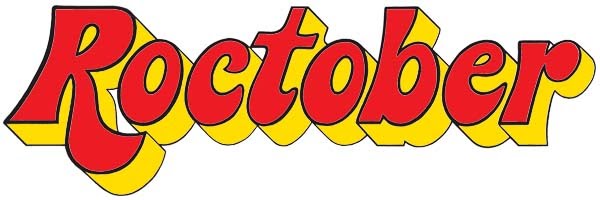(Aspiration Films DVD) [Guest review by Gentleman John Battles]
Telstar is one of the greatest recent
Rock films you could be forgiven for saying you've never heard of. It didn’t
even appear to have made the Film Festival circuit in the U.S. upon it's
release a few years ago. I saw the soundtrack, once, and foolishly passed
on it. Hopefully, this release will rectify the situation, as America (and all
her little satellites) needs to know...The
Joe Meek Story (Which should be listed, below the main title, on the DVD
cover).
Meek, played brilliantly here, by Con
O' Neill, took the UK pop music scene into the future, a future that would sift
through his hands before his horrific, though inevitable, demise. O’neill's
mad scientist conviction, with untested, ultra-low budget recording techniques,
gives one a personal view of the psychodrama inside Joe Meek's head, as well as
the events that would transpire in the ensuing years to follow. "Telstar,"
by the Tornados, the first UK single to reach # 1 in The U.S. (about a
year before The Beatles pulled off the same feat), celebrated the newly launched
satellite that bounced English TV broadcasts back to America (who replied, "Send
some "Carry On" films!"). The song still impresses today, with
the Bizarro world sound of the Clavioline, a keyboard that emitted, perhaps
unintentionally, otherworldly sounds . The final sound on the record, the
illusion of the satellite hitting the ocean, was created with a miked-up
toilet. Don Craine, from The Downliners' Sect, once told me that, though as
widely believed Meek did use his kitchen as a base of operations, he also did
much of his recording "in the bog." Telstar illustrates this.
Unconventional techniques aside, Meek
became one of the most powerful men in the British recording industry,
producing hit records on what it cost Phil Spector to go to the deli, sans a
tip. His peers, like himself, were largely middle-aged gay men (like uber-promoter
Larry Parnes, and, of course, Brian Epstein, who briefly figures into the
proceedings, begging Meek to sprinkle some "Faerie Dust" on an early
Beatles demo, and make it a hit. The increasingly arrogant Meek drops the demo
in his wastebasket). Unlike them, and others known to be gay only by industry
insiders (homosexuality had yet to be legalized in Britain), Joe Meek made
no effort to "tone it down". He lets a torrid affair with his
protege, Tornados' bassist and newly peroxided solo star, Heinz (who did cut
some good sides, under Meek's tutelage) distract him from his work. Heinz (if
this really happened) appears willing to do just about anything, until he wakes
up, one morning, and says, "Hey! I don't arf fancy BIRDS!" taking
advantage of the new crop of eager females waiting outside his gigs and
sessions. Meek has found, in Heinz, a man he couldn’t control, and rapidly
begins his plunge into alcohol, pills, and mental instability.
But, Joe Meek is still on top, and
the hits keep coming. Nick Moran's outstanding direction captures the
manic nature of both Meek's creative and business side. Actors representing
Screaming Lord Sutch and exiled Rock and Roll god Gene Vincent come and go, all
too quickly (though a hilarious pranking session between Gene, his band, and
Heinz, offers some much-appreciated comic relief). Blink and you'll miss
Ritchie Blackmore, then of the Meek-produced Outlaws.The second-best known Joe
Meek UK and US hit, "Have I the Right", by The Honeycombs, is only
represented in passing.
Meek goes from strength to strength,
but something is terribly wrong.
His "Song for Buddy Holly" (recorded by Mike
Berry) proves to be yet another hit, but his publicly statement, that
he had predicted the date and the year of Buddy Holly's death, doesn’t help his
credibility. However, he's so unphased by any implications of instability, he
convinces Heinz to record the excellent Eddie Cochran tribute, "Just Like
Eddie", this time, not at all convinced that his own purported
psychic powers had anything to do with Cochran's death of a few years earlier.
Still, the power hungry egomaniac, whose word is law, even when he's wrong,
quickly descends into dementia, depression and an addiction to amphetamines. In
a desperate bid to snatch victory from the jaws of defeat, Meek becomes
involved in the Occult, while, all around him, music is changing
drastically. Gone, or dumbed down, are the likes of early rockers Cliff Richard,
Billy Fury, and Adam Faith (all represented, too briefly, by rare TV footage.
Amazingly, the purely macho, and remarkably homoerotic, Vince Taylor, isn’t
even mentioned). Moran's direction captures Meek in terrifying decline, just as
powerfully as it did his almost fun-loving creative ascent. Joe Meek finally
succumbs to his demons, in the murder/suicide shooting of his landlady, as
well as himself, on the anniversary of Buddy Holly's death. A few short months
later, Brian Epstein would follow, but whether or not Meek could have found his
feet in the newly emerged UK Psych scene, brought on, in part, by Sgt. Pepper (creating a new hysteria for
Epstein's charges that he barely lived to witness) is s another
one of many "what if's" in Rock and Roll.



I found a copy. Great. Full-on.
ReplyDelete